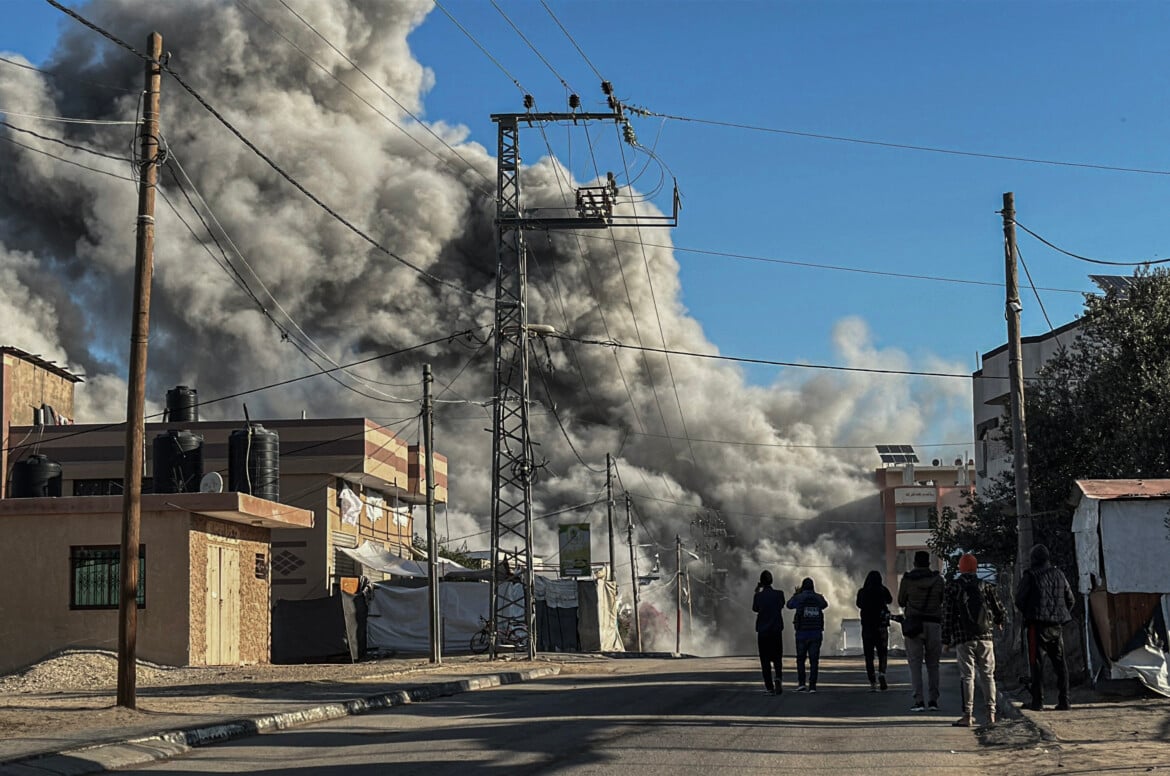Analysis
The Hague won’t back down against Israeli, despite claims of US ‘sanctions’
The International Criminal Court said it would revoke the arrest warrant against Israeli officials if Israel conducts its own investigation. But Israel is unlikely to do so, and every report indicates the crimes are continuing.

The International Criminal Court could revoke the arrest warrants against Israeli Prime Minister Benyamin Netanyahu and his former defense minister Yoav Gallant if Israel starts an independent and impartial investigation into the crimes that the International Criminal Court is accusing them of, said the court's spokesman, Fadi El Abdallah, on Thursday in an interview on Israel’sKan public radio station.
The statement came on the day the Tel Aviv government said it would file an appeal against the arrest warrants (although Israel doesn’t adhere to the Rome Statute so it has no legal standing to do so), and one day after France and the U.K. backpedaled on executing the arrest warrants: they won’t arrest Netanyahu if he enters their territory after all, because he is supposedly covered by immunity for heads of state (they did not comment on Gallant, who isn’t a head of state and isn’t even a government official anymore).
At the same time, the outgoing EU High Representative for Foreign Affairs, Josep Borrell, was insisting that European countries needed to respect the Hague decision (“We cannot undermine the International Criminal Court. It is the only way of having global justice”), while Israeli Foreign Minister Gideon Sa'ar said he was certain that the United States – which is also not signatory to the Rome Statute – would “very soon” impose sanctions on the court and on anyone cooperating with the court.
The sniping continued from Tel Aviv and its allies, but the court held firm: Fadi El Abdallah merely reiterated one of the founding principles of the court, that of complementarity, which says that the court will only intervene in the event that the state involved is unable or unwilling to open an independent and impartial investigation against the same persons for the same crimes.
It’s highly unlikely that Israel will do so: it doesn’t do it for individual soldiers, so how would it do it for the prime minister? It doesn’t do it for individual crimes, so how would it do it for state policy? But contemplating this possibility is enough to reopen the debate over whether the Israeli judiciary is really a democratic institution, one that since 1948 has been propping up the Israeli system of settlement colonialism and the apartheid regime based on internal Jewish supremacism with its rulings and legislative interpretations.
Several independent and UN commissions have spoken out on this matter, starting with the Goldstone report: they have concluded repeatedly that the judicial system in Israel has always aimed at protecting the political and institutional system, not at ensuring justice.
Meanwhile, new reports from Gaza confirm that the worst crimes that the Hague Court is accusing the Israeli leadership of – starvation as a weapon of war and extermination on a national basis – are still being perpetrated. According to the UN agency for Palestinian refugees (UNRWA), for more than 50 days the Israeli army has been blocking any attempt to deliver aid to northern Gaza.
Under siege since early October, subjected to a devastating military campaign that has resulted in ethnic cleansing, northern Gaza only has between 65,000 and 75,000 Palestinian inhabitants left from the previous 400,000. Between Oct. 6 and Nov. 25, the UNRWA writes, none of the 91 attempts to deliver aid to Jabaliya, Beit Lahiya and Beit Hanoun were successful: 82 missions were denied permission by Israel, and 9 were not allowed to pass despite the fact that permission had been given.
The situation remains one of total control exercised by Israel over the civilian population, over what and when they can eat, over who lives and who dies, in a piece of land where nearly two million people – 90 percent of the entire population – is now displaced and has very little access to water, food, shelter and sanitation.
On Thursday, air raids hit the entire Strip, starting from the Nuseirat refugee camp, where an Al Jazeera cameraman was injured. Journalist Hani Mahmoud reported in the early afternoon that an intense bombardment campaign was ongoing together with artillery strikes, targeting not only residential buildings and houses, but also mosques and public buildings. One of the raids hit a house full of displaced people, with seven members of the same family killed and others are trapped under the rubble.
Four were killed in Rafah, 22 in central Gaza, six in Beit Lahiya. In total, the updated official death toll stands at more than 44,300 Palestinians killed since Oct. 7, 2023 – a number that severely undercounts the real number of deaths, as it doesn’t take into account the thousands listed as missing.
For its part, the Israeli ultra-right continues to work to get settlers into Gaza. Settler leader Daniella Weiss told Channel 12 that she has visited the Strip “dozens of times” since Oct. 7, 2023, the first time just a week after.
These statements are putting the Israeli army on the spot, which recently had to deny that they granted her a special permit of entry. Meanwhile, on the “institutional” front, Minister Itamar Ben Gvir, writing on X, called on the government to seize the “historic opportunity” to “reoccupy the Gaza Strip and encourage voluntary migration of Israel's enemies.”
Originally published at https://ilmanifesto.it/laja-non-fa-passi-indietro-tel-aviv-presto-sanzioni-dagli-usa on 2024-11-29
